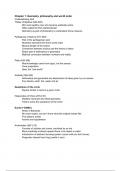Samenvatting
Summary Names and Happenings of the first seven chapters of History Of Science (X_400652)
- Instelling
- Vrije Universiteit Amsterdam (VU)
Almost all names and important happenings in the first seven chapters of History Of Science (X_400652)
[Meer zien]




